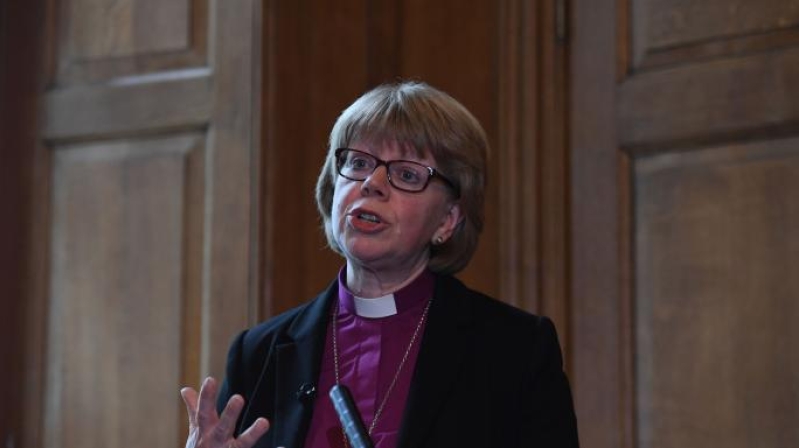
Sarah Mullally, the first female Bishop of London, has emphasized the Church of England's traditional teaching on marriage as being between a man and a woman despite being "supportive of LGBT equality."
The Guardian reports that Mullally, who was appointed the 133rd bishop of London, the third position in the Church of England, on Monday, is "viewed as supportive of LGBT equality."
Mullally admitted the sexuality question "is a challenging issue not just for diocese of London" and said she hoped everyone -- regardless of their orientation -- could find a spiritual home.
However, she endorsed current Church of England teaching that marriage was a union between a man and woman, saying: "I absolutely support that."
"We have to remember that this is about people and there is for me a sense that all of us come under the love of God in Christ Jesus and we need to ensure that we remember it," she said.
Mullally, the bishop of Crediton, will automatically take a seat in the House of Lords and the post-holder is traditionally dean of the royal chapels.
At a press conference at St Paul's Cathedral, Mullally, a former nurse, said she was "delighted and slightly terrified" at her appointment.
"It is a great honor to be nominated to the see of London. Having lived and worked in London for over 32 years, the thought of returning here is about returning home," she said.
"I am often asked what it has been like to have had two careers, first in the NHS and now in the church. I prefer to think that I have always had one vocation: to follow Jesus Christ, to know him and to make him known, always seeking to live with compassion in the service of others, whether as a nurse, a priest, or a bishop.
"To be given the opportunity to do that now in this vibrant world city is a wonderful privilege."
The BBC notes that Mullally's appointment is not without controversy, as conservative members of the Church of England disapprove of women priests. The previous bishop of London, Richard Chartres, declined to ordain priests of either gender in order to avoid stirring controversy.
Regarding this issue, Mullally told reporters: "I respect those that cannot accept my ministry as a bishop because I am a woman," adding that the diocese was theologically diverse, and she would work with the bishops of Fulham and Maidstone, who minister to clergy and congregations who do not accept female priests.
She also vowed to combat seual abuse in the church, she said she would "seek to have a culture ... where there is no place for abuse," and planned to work with survivors and help them flourish.
"That's the light that shines in darkness and the darkness won't overcome it," she said. "As a bishop in the House of Lords, I want to be a voice for people on the margins. As the bishop of London, I'll be pointing out where there is hope."
While some -- including Tony Robinson, bishop of Wakefield and chairman of Forward in Faith have warned Mullally's appointment in a diocese where so many people rejected the ministry of women would result in "a deeper impairment of communion" -- others have praised the move.
The group Women and the Church (WATCH) said it was 'immensely delighted' at the appointment.
The Archbishop of Canterbury, Justin Welby, also welcomed her appointment.
"As one of the first women consecrated as a bishop in the Church of England, she has not only blazed a trail for others but lived out the principles of mutual flourishing and acceptance which I know will continue to bear fruit in London."






